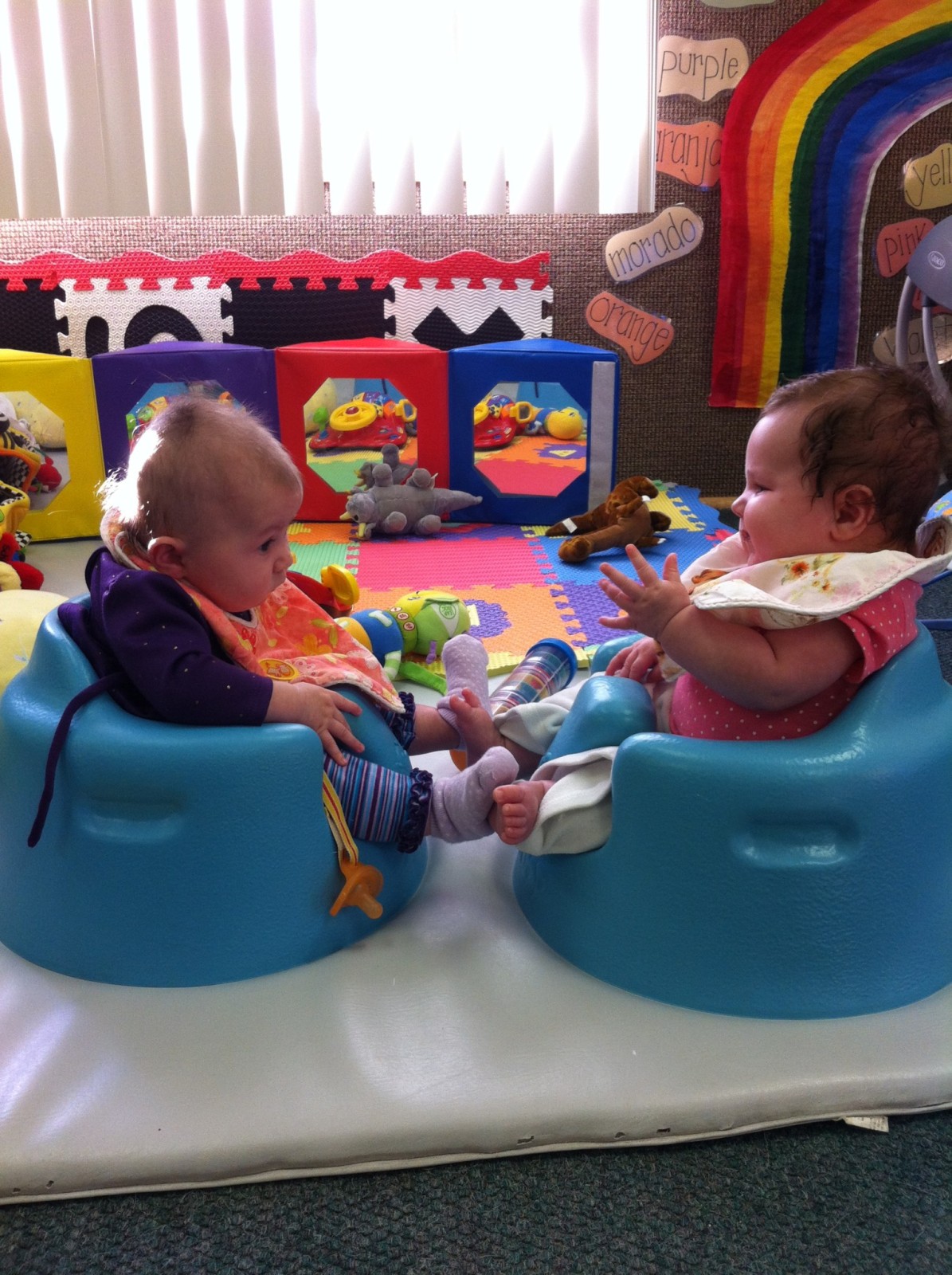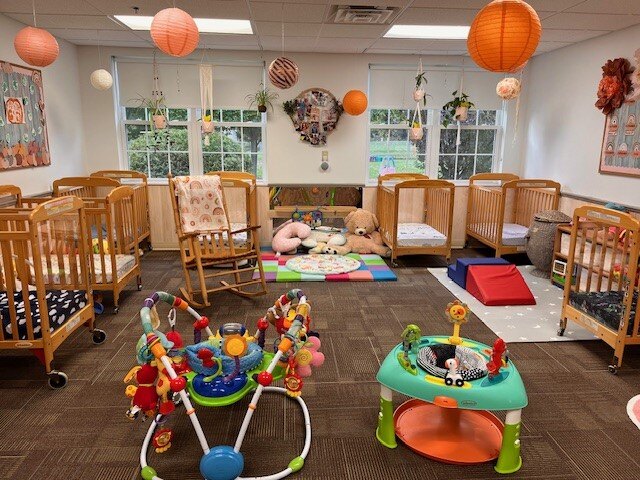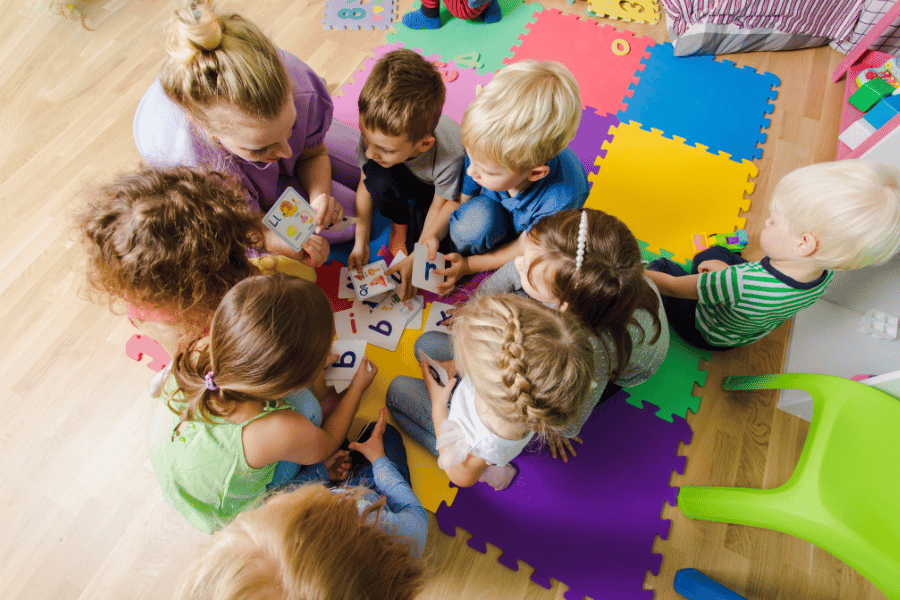Why Parents Rely On A Professional Child Care Center For Their Children
Wiki Article
The Role of Childcare in Fostering Social Skills and Early Learning
Day care works as a significant setting for kids, promoting essential social interactions that advertise early learning. In this structured setup, youngsters involve with caretakers and peers, developing crucial interaction and teamwork abilities. As they navigate play and numerous activities, they learn to solve disputes and construct psychological knowledge. Comprehending the subtleties of these communications reveals the extensive influence daycare has on a child's growth, forming their future relationships and academic preparedness. What details abilities do youngsters obtain in this setting?The Relevance of Social Communication in Daycare
While numerous parents acknowledge the significance of early childhood education, the function of social communication in childcare is frequently undervalued. Day care setups provide kids with vital possibilities to involve with peers, cultivating vital social abilities. During these developmental years, children find out to navigate various social characteristics, such as sharing, teamwork, and dispute resolution. Interacting with diverse age and individualities improves their capacity to adapt to various settings and develop empathy towards others.
Building Interaction Abilities With Play
Play works as an effective tool for kids to build crucial interaction skills in day care setups. Through numerous play activities, children talk, express their ideas, and find out to pay attention to others. Role-playing games, for instance, motivate them to utilize language in different contexts, advertising vocabulary expansion and understanding of social signs.
In addition, narration during playtime allows children to convey concepts and emotions, aiding them create narrative skills and confidence in their verbal expressions. Overall, play not just acts as an enjoyable activity but also as a vital platform for creating the interaction skills required for effective social interactions in later life.
Motivating Collaboration and Synergy
Teamwork and team effort are necessary skills that youngsters can grow in childcare environments. With numerous team tasks, such as developing projects or joint games, youngsters discover to share duties and job toward usual goals. These communications promote an understanding of the relevance of listening to others, bargaining functions, and endangering when required.In day care setups, caregivers typically produce opportunities for kids to participate in team effort by encouraging them to take part in team tasks. This not only assists children create social bonds yet likewise grows a feeling of belonging and neighborhood.
As they browse these cooperative experiences, youngsters get valuable insights right into the dynamics of dealing with peers. They find out to value diverse viewpoints and recognize that each member contributes uniquely to the group effort. Eventually, these very early lessons in participation and teamwork lay the groundwork for healthier partnerships and reliable collaboration in future social look these up and scholastic settings.
Structured Learning Activities and Cognitive Development
Structured learning tasks play an indispensable function in promoting cognitive growth in kids (Childcare Near Me). These tasks, which consist of challenges, storytelling, and hands-on experiments, stimulate essential thinking and problem-solving abilities. In a day care setup, structured understanding urges children to involve with their peers, improving their ability to procedure information and comprehend different ideas
Via directed play and interactive tasks, children establish fundamental abilities such as numeracy and literacy. As an example, activities focused around numbers can help youngsters comprehend mathematical principles, while storytelling enhances language acquisition and understanding. In addition, organized understanding allows teachers to analyze developmental development and dressmaker tasks to individual understanding needs.

Including a varied variety of structured tasks not only advertises cognitive development yet additionally prepares children for future academic success. By giving a well balanced environment that fosters exploration and questions, childcare programs play a vital function fit the cognitive capacities of young students.
Cultivating Emotional Knowledge and Self-confidence
Psychological intelligence and self-confidence are vital parts of a kid's advancement, complementing the cognitive skills fostered via structured understanding tasks. In childcare settings, youngsters are supplied with chances to reveal their emotions and take part in social communications, which are critical for developing psychological understanding. Through directed play and team activities, youngsters learn from this source to determine their sensations, acknowledge those of others, and develop empathy.Interaction with caretakers and peers helps to cultivate self-worth and strength. Favorable support and encouragement from grownups empower youngsters to take dangers and face challenges, promoting a sense of success. As they navigate social characteristics, children construct self-confidence in their capacities to communicate, work together, and fix conflicts - Childcare Near Me. This nurturing environment enables the progressive growth of psychological intelligence, which is crucial for future interpersonal connections and total well-being. Therefore, daycare plays a considerable role in cultivating both emotional intelligence and confidence in young children
Regularly Asked Inquiries
How Can Parents Select the Right Childcare for Their Youngster?
Moms and dads need to think about variables such as area, team credentials, security requirements, curriculum, and evaluates from this article various other moms and dads when selecting the appropriate childcare for their child, ensuring it lines up with their youngster's developmental requirements and household worths.
What Age Is Best for Beginning Day Care?

How Does Day care Impact Children's Actions in your home?
Childcare typically favorably affects children's habits in the house by boosting social abilities, advertising freedom, and encouraging psychological law (Childcare Near Me). Therefore, children might exhibit improved interaction and cooperation, resulting in more unified household characteristicsAre There Any Kind Of Disadvantages to Childcare Attendance?
Yes, there are drawbacks to daycare attendance, including prospective separation anxiety, direct exposure to illnesses, and inconsistent caregiving. These variables can affect a child's psychological wellness and modification in the house, influencing total household characteristics.Just How Can Moms And Dads Support Social Skills Learned at Day Care?
Parents can sustain social skills discovered at daycare by promoting playdates, urging participating tasks, modeling favorable interactions, talking about sensations, and enhancing sharing and interaction in the house, thus enhancing their kid's social advancement and confidence.Daycare serves as a significant environment for young children, promoting vital social communications that advertise early learning. Day care setups give youngsters with indispensable chances to engage with peers, promoting important social abilities. Play offers as a powerful tool for kids to build essential communication abilities in day care setups. In daycare setups, kids are provided with possibilities to reveal their feelings and engage in social interactions, which are essential for developing emotional awareness. Childcare usually positively influences youngsters's habits at home by enhancing social abilities, promoting independence, and motivating emotional regulation.
Report this wiki page